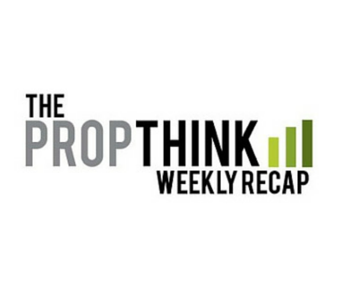In biotech investing, rarely do five trading sessions go by without some explosive volatility. This week, it was Merck’s (MRK) acquistion of Cubist Pharmaceuticals (CBST) for $9 billion, and bluebird bio’s (BLUE) latest data release that made the biggest splashes.
Best of all, long-term PropThink readers profited from both, at 100% and 140%, respectively.
Merck is acquiring Cubist for $102/share, a 35% premium to last Friday’s close and a double for PropThink readers who followed Mr. King in when he first opined on Cubist’s litigation with Hospira (HSP) in 2013 (read more about the litigation here and here [free] and see our more recent coverage). In the Monday trading session, after the deal was finalized, CBST hovered around $101, typical of a buyout that has yet to close and isn’t anticipated to close until the first quarter of 2015.
But shortly after the closing bell, and in a case of very poor timing for Merck, the U.S. District Court in Delaware ruled on Cubist’s patent infringement case against Hospira, invalidating four of Cubist’s key patents. In essence, Cubist is now reliant on the single, RE’071 patent, which expires in June of 2016, to keep Hospira from bringing a generic version of CUBICIN (daptomycin) to market. Cubist issued a statement on Monday evening, indicating that they intend to appeal the judgment, with conclusion expected before Hospira could launch a product in 2016. Most importantly, Cubist reiterated that the transaction with Merck is unaffected – Merck issued a similar statement shortly after. We suspect the Cubist-Merck deal goes through as planned; included in the full acquisition agreement is a list of events (Material Adverse Effects) that do NOT give Merck an out, including a decision with respect to the Hospira litigation.
It looks like there may be some alpha to be had for risk-arbitrage players, with CBST drifting to $96 by the end of the week and the deal pegged at $102. Regardless, we’re on the sidelines, booking a 100% return less than 18 months from initiating the idea. We continue to believe that antibiotic developers are a must-own component of any healthcare portfolio.
The showstealer for the week: preliminary data from bluebird bio (BLUE) presented at the American Society of Hematology’s annual meeting this week. LentiGlobin, a gene therapy for the treatment of a rare, genetic blood disorder, is producing ground-breaking – albeit early – outcomes in patients. LentiGlobin is a therapeutic that works to correct the genetic defect underlying β-Thalassemia Major, a disorder characterized by life-long dependence on blood transfusions as the patient’s body produces defective red blood cells.
The first four beta-thalassemia patients treated with LentiGlobin, all of whom have had at least 3 months of followup, are all transfusion-independent and producing normal or near-normal amounts of hemoglobin. The first two patients treated to date are now 12- and 9-months transfusion independent, and even the single patient with a more difficult-to-treat genotype (B0/B0), at 3 months post-treatment, is transfusion-independent.
Bluebird exceeded everyone’s expectations, including ours.
Mr. Fink first suggested to PropThink members buying BLUE in late October, when the stock traded at just over $35 (+140% since), and outlined what to look for at ASH: Monday’s data were 3 for 3 on Mr. Fink’s criteria:
•No Adverse Events relating to drug product. [Check: 6 of 6]
•Stable ßA-T87Q expression at levels enabling transfusion independence (total Hb: 9-18 [g/dl]) [Check: 4 of 4]
•Insertional analysis of the ßA-T87Q transgene demonstrating polyclonal integration, with no clonal dominance. [Check: 3 of 3]
We’re planning a deep-dive in the coming month on the scientific rationale behind testing LentiGlobin in Sickle Cell Disease, an immense unmet need and immense market opportunity for a drug that corrects the underlying cause of the disorder. Get ahead of it and be on the bleeding edge with our Premium research service.
 Early this week we published Mr. Fink’s introduction to checkpoint inhibitors and their role in immuno-oncology. Following a preamble on this emerging class of therapeutics, Mr. Fink gets into the weeds with one small-cap company that’s operating in a field of their own: novel targets that could prove profoundly importantant to combination therapies in this expanding space. Read the report (get ready, it’s long) by clicking here.
Early this week we published Mr. Fink’s introduction to checkpoint inhibitors and their role in immuno-oncology. Following a preamble on this emerging class of therapeutics, Mr. Fink gets into the weeds with one small-cap company that’s operating in a field of their own: novel targets that could prove profoundly importantant to combination therapies in this expanding space. Read the report (get ready, it’s long) by clicking here.

